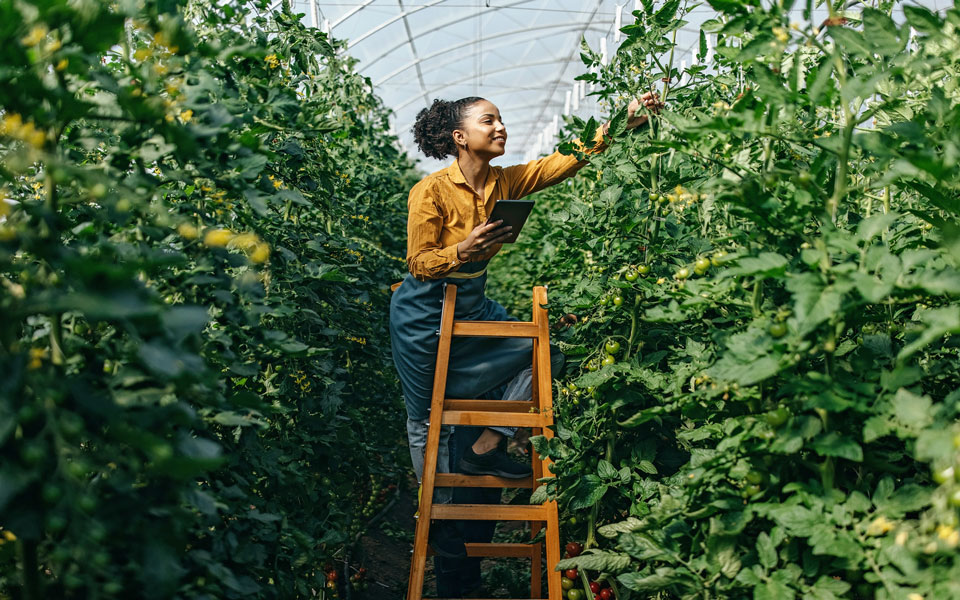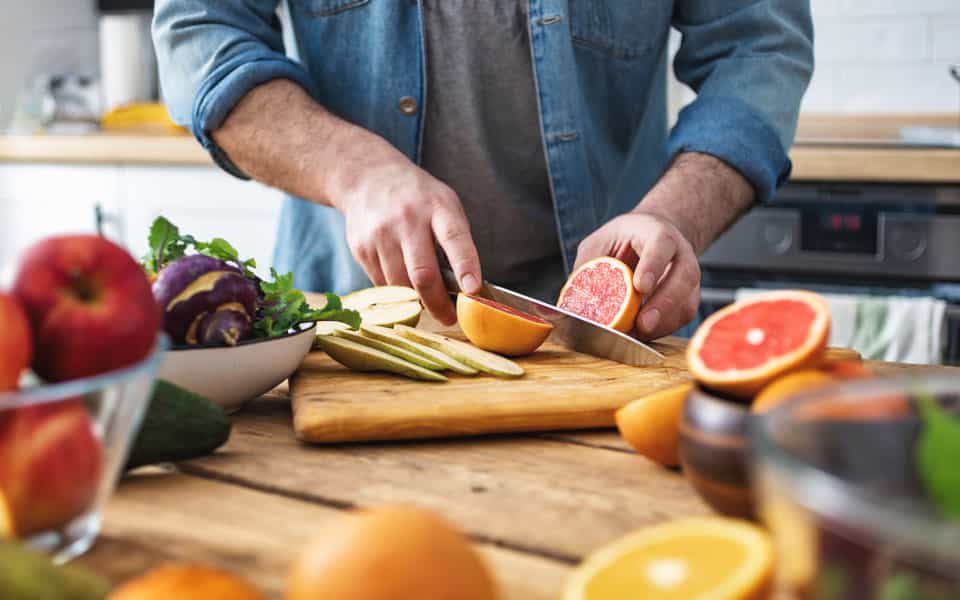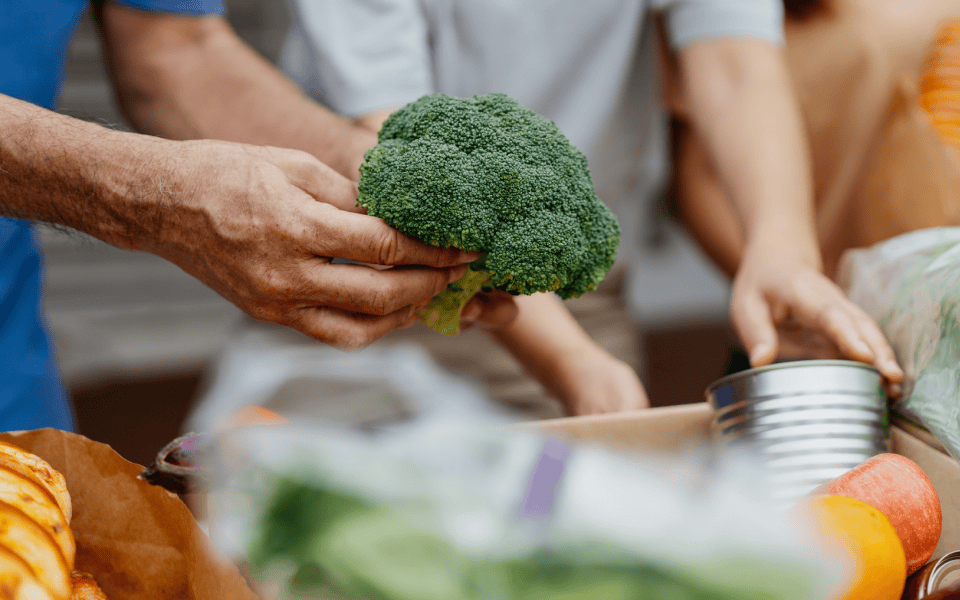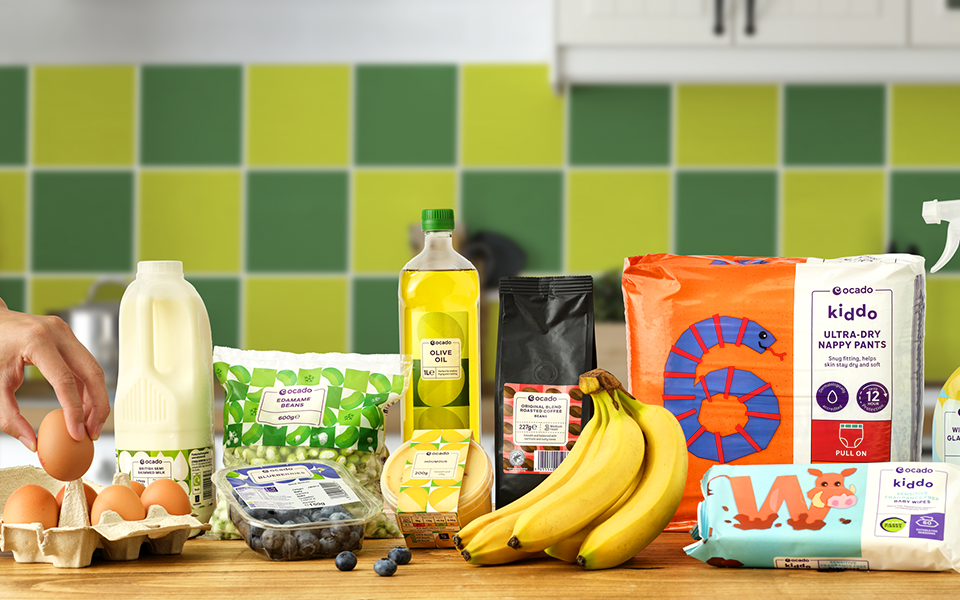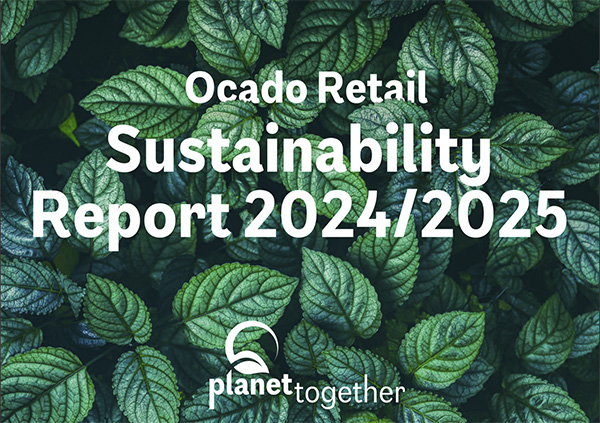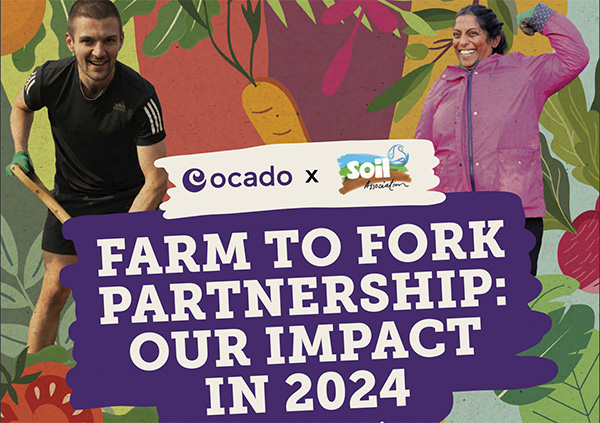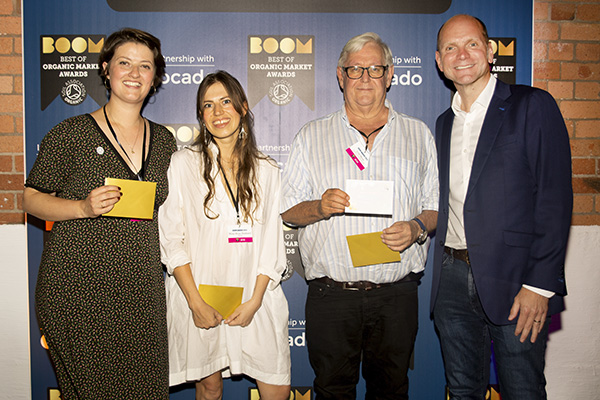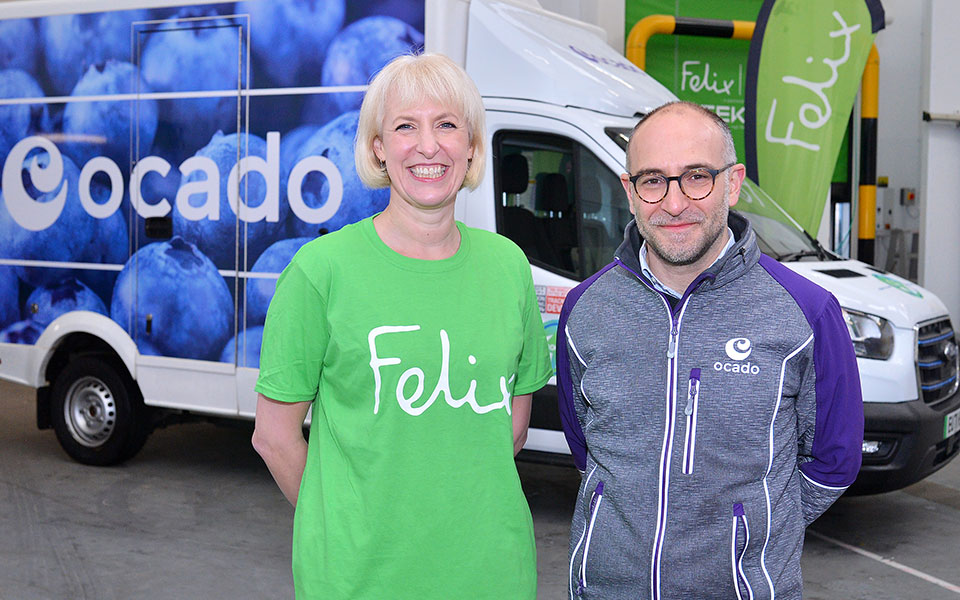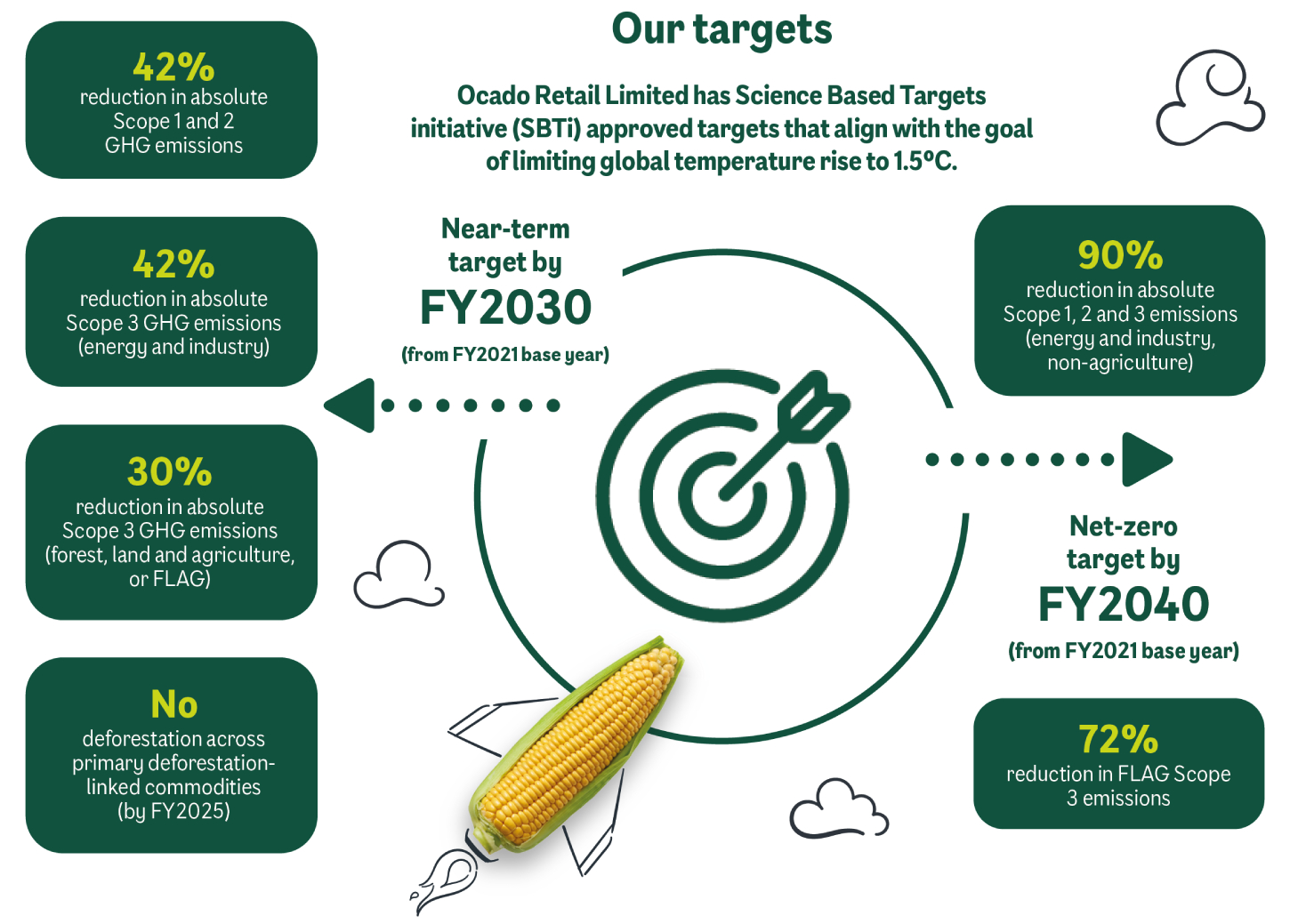
We’re working together for a better planet
As the world’s largest dedicated online supermarket, whether at an individual or organisation level, we have a responsibility to ensure that together, we step up and take action in the fight for the future of the planet.
At the same time as we focus on delivering unbeatable choice, unrivalled service and reassuringly good value for our customers, we remain equally committed to delivering our sustainability commitments in the coming years.

Our Planet Together strategy
Our aspirations will only be achieved if we put sustainability at the heart of our organisation from our range of products, to how we make decisions and how we operate. We’ve made good progress but we know more is needed to ensure we’re fit for a #PlanetTogether future.
Our timeline
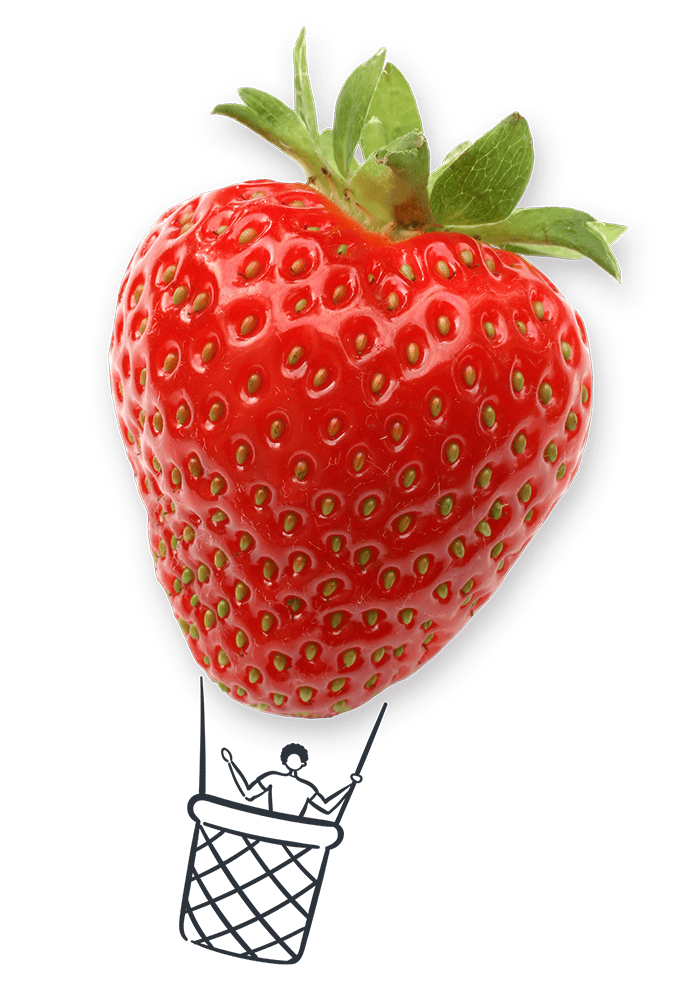

“Alongside our customers, suppliers and stakeholders, we’re working together for a better planet”

Hannah Gibson, CEO Ocado Retail
Larger range of vegan and organic products than any other supermarket.
Four awards for our pioneering reuse scheme for online.
Helped the Felix Project to deliver more than 4 million meals since our partnership began.


